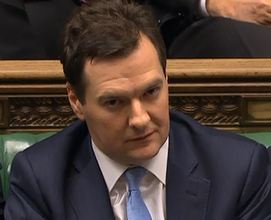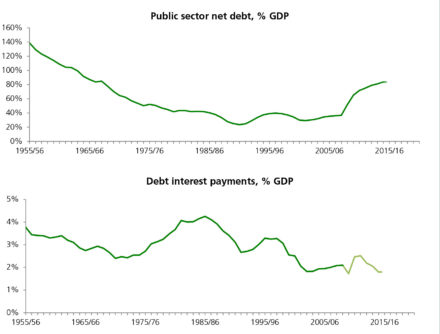
It’s worth remembering that George Osborne helped cause the Euro crisis – indirectly at least. In 2008, Gordon Brown brought the world together in London to co-ordinate against the threat of global depression. Together with Washington, Gordon proposed a $2tn international package of public spending. The Germans were uncomfortable, but joined in when China backed the Anglo-American proposal.
As a result, world depression was avoided, but things started to unravel when the Tories formed a government in 2010 and presented austerity as strength. The Germans were inspired and with the support of President Sarkozy, the Eurozone adopted austerity. Massive unemployment was imposed on countries such as Greece, while George Osborne watched on with a sense of pride, but it soon became clear that this was a terrible mistake. Europe’s recession turned to depression. The debts multiplied exponentially. The continent has yet to recover.
And so it was in this context that Christine Lagarde of the IMF took to the podium to report on the world economy last week. The British media reported her one remark about the potential instability of a Brexit, but the bulk of the speech was a call for the advanced world to adopt a co-ordinated fiscal stimulus, in particular for infrastructure projects.
From 2010 the Tories cancelled most infrastructure projects but quietly reversed some austerity in 2012 after the economy flat-lined. Osborne managed to preserve his reputation only because Labour’s two Eds were so busy arguing with each other that they neglected to attack him.
Today the Tories enthuse about infrastructure investment, especially in the Northern Powerhouse, but once the talk is done they persistently refuse to commit the money, due to Osborne’s fear of missing his self imposed spending targets, regardless of the super-low interest rates that have become the norm through Alastair Darling’s quantitative easing.
Osborne’s defence of “insufficient fiscal space” simply doesn’t stack up, since it’s not the size of the debt that matters, but the size of the payments to service the debt. Following QE, our interest payments are about a third lower than the amount we were paying when Labour came to power in 1997.

It’s not a left wing conspiracy to attack George Osborne. IMF policy is formed by committee, appointed by western governments. This is a conservative institution. Christine Lagarde was finance minister under Sarkozy when the Eurozone switched to the austerity policy described above. The world is turning on Osborne in the same way as his Conservative back benchers. Everyone is fed up.
People used to speak of Osborne as a political strategist, but he has a character flaw that has caused him to fail as a politician. To corrupt a quote from John Maynard Keynes: “If the facts change, I stick to my policy.”
It’s time for John McDonnell to focus his attack on Osborne. With so much of the world in agreement with Labour’s shadow Chancellor, there is a growing sense of credibility in his arguments.




More from LabourList
‘Council Tax shouldn’t punish those who have the least or those we owe the most’
Two-thirds of Labour members say government has made too many policy U-turns, poll reveals
‘Two states, one future: five steps on the path to peace for Israelis and Palestinians’